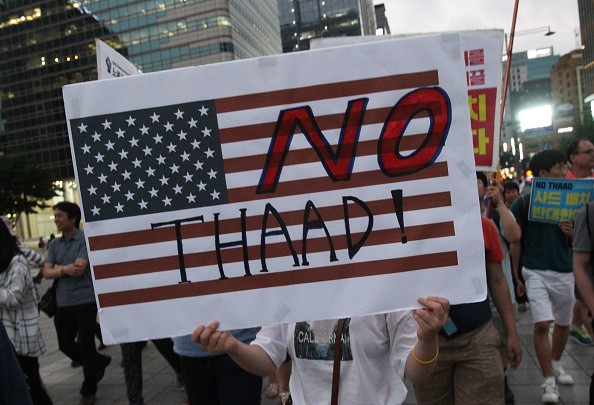The U.S. and South Korea are following through with the deployment of the anti-missile system, causing tension between the two Asian nations. If things don't get any better, bilateral relations might suffer in the long run.
The Terminal High Altitude Area Defense (THAAD) system is cited as a solution to potentially stop a nuclear from North Korea. But news of the deployment sparked concern from China and Russia, saying that the system is a threat that is too close to their borders. Both countries have agreed to implement "unspecified" countermeasures.
Earlier this month, China has threatened some of South Korea's mega companies over the issue, saying that their businesses in China could suffer. Among the companies warned by a Chinese foreign ministry official were Samsung and Lotte Group.
The anti-Korean sentiment intensified in China's private sector after Lotte decided to conclude a deal for the swap of a golf course in Seongju Country for a piece of land near Seoul, which is owned by the Defense Ministry for the deployment of the THAAD. Slogans boycotting Lotte products are appearing on Chinese social networks and THAAD-related articles.
"Earning profit is a top priority for companies, but it's difficult to maintain such position in the current situation," said Song Qi, whose online store carries Korean products.
"In the case of the cosmetics sector, there aren't any companies that see the current situation as an opportunity.
"Many companies used to work with Korean companies, but now more companies are actively participating in the government's anti-Korean wave measures believing that they would have a wider presence if they intensify regulations against Korean content."
Meanwhile, citizens are applauding the government's recent rejection of shipments coming from South Korea. It even refused issuing a visa to Korean pianist Paik Kun-woo.
The relations between China and South Korea will continue to suffer if the latter will still push through with the THAAD deployment. It would be wise for South Korea to pull out of the agreement now than to face future retaliations from China, and possibly other neighboring countries.



























